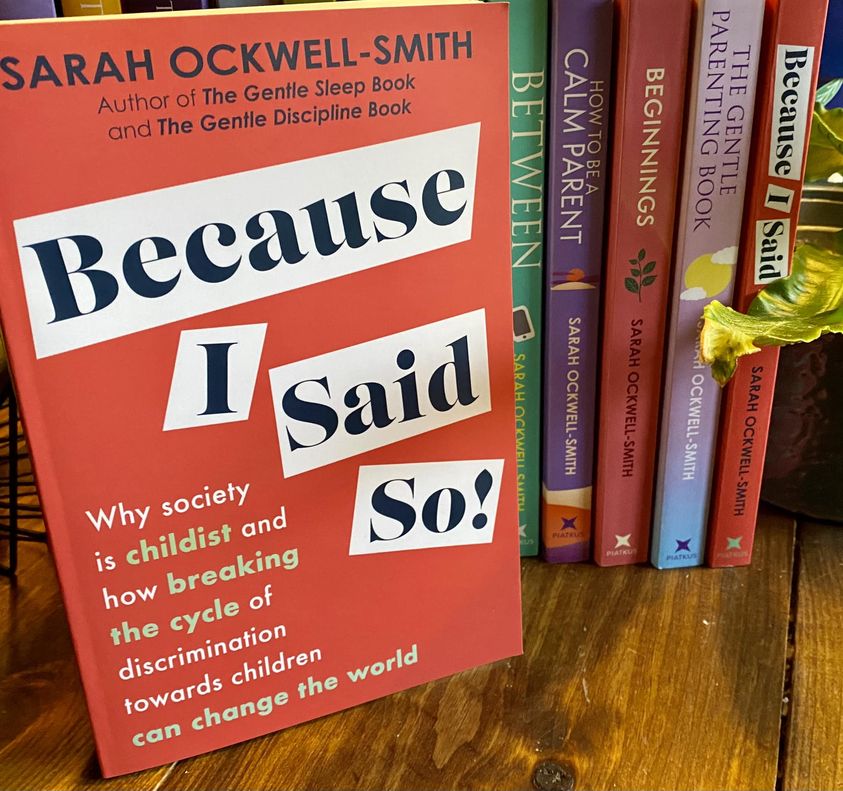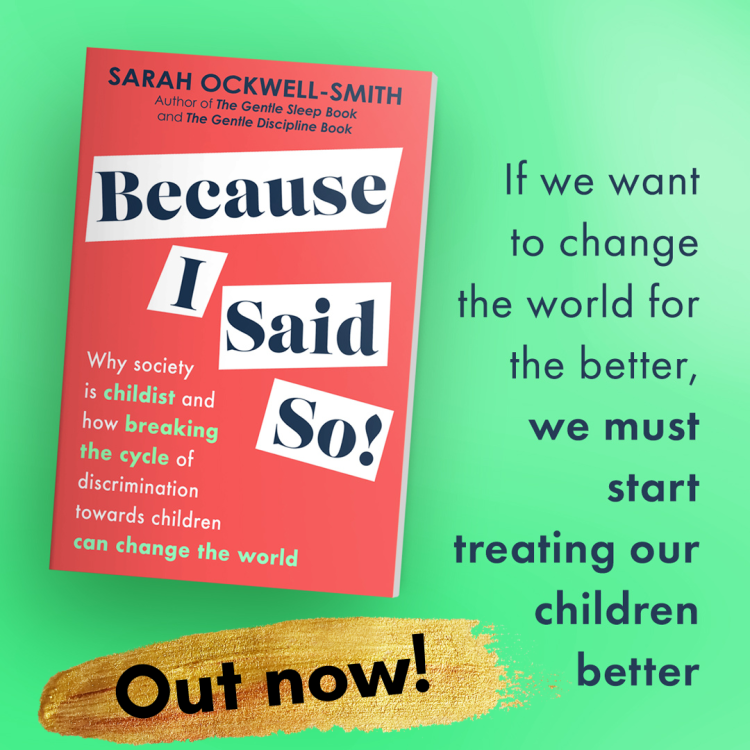
Ten important takeaways from ‘Because I Said So! why society is Childist and how breaking the cycle of discrimination towards children can change the world’:
1. Childism is discrimination based on age. The correct term should actually be ‘ageism’, which is a well accepted ‘ism already – but universally used to talk about the discrimination of the elderly.
2. We have all been affected by childism when we were children, we often don’t realise it though and just grew to accept that adults hold a position of power over children. Often our loved ones have been even more deeply affected than us and when we struggle with their beliefs about parenting and discipline, we have to start with empathy and understanding how they have reached this position before we can ever try to change it.
3. When we become parents ourselves we tend to subsconsciously continue cycles of childism with our own children. This can make it incredibly hard when we try to be anti-childist as it means admitting some of the things we’ve done to and with our children may not have been in their best interests.
4. Childism is a feminist issue. If we don’t value children we don’t value those who are their primary caregivers – women. Mothers, and childcare workers who are mostly female are under supported, undervalued and underpaid by society.
5. Childism is political. We can be the best gentle parent in the world, but it won’t undo the inherent discrimination of children by our governments – especially the underfunding of schools, child mental health services, SEND support, funded childcare plans, handling of Covid lockdowns, climate change policies and the impact of children growing up in poverty. To stop childism, we have no choice but to be political.
6. Common parenting advice, especially focused on sleep and behaviour is highly childist, prioritising the needs and wants of adults over the needs and feelings of children. These techniques date from childist advice (always from men) from the late 19th and early 20th centuries.
7. The internet, social media and sharing images and videos of our children without their consent is an issue unique to our generation and one that has lasting and important consequences. There have already been legal precedents set when children have sued their parents – and won – for breach of privacy. The same legal rights to be forgotten and have personal data protected apply to children as well as adults.
8. While human rights laws protect all of us and specialist articles protect children even more tha no adults, they are frequently breached. On a daily basis schools breach a child’s rights to rest and play for instance when they keep children inside during breaks as a form of discipline.
9. Once you become aware of the existence of childism you will notice it everywhere – from tiktok challenges and social media shaming of children, to banning children from shops and airplanes. It is everywhere – and arguably is getting worse.
10. If we want to create a fairer, more equitable, world we have to start with how we treat our children. Ending childism is down to all of us, we all have an important role to play and we CAN make a difference, especially when we work together.
![]() ’Because I Said So!’ Is out now – it’s for anybody who has children, works with children, or simply cares about the future of our world.
’Because I Said So!’ Is out now – it’s for anybody who has children, works with children, or simply cares about the future of our world.
